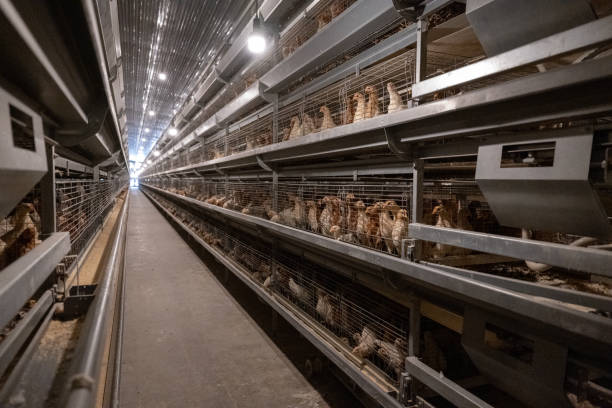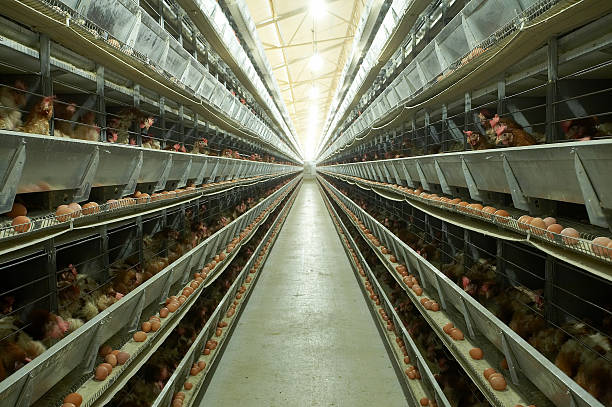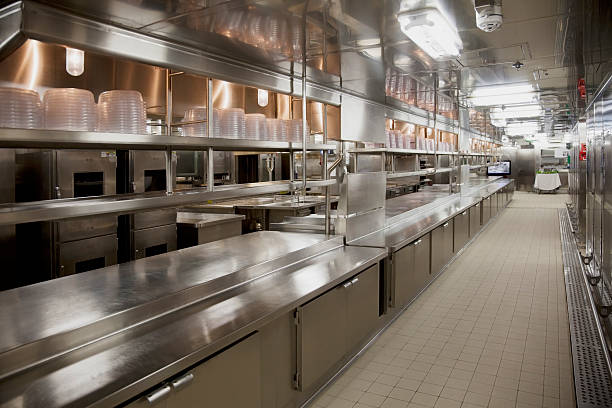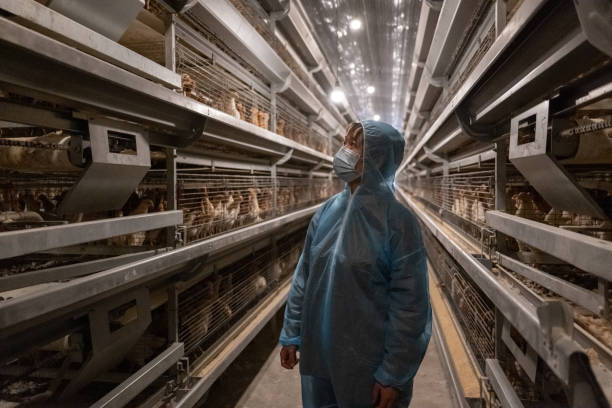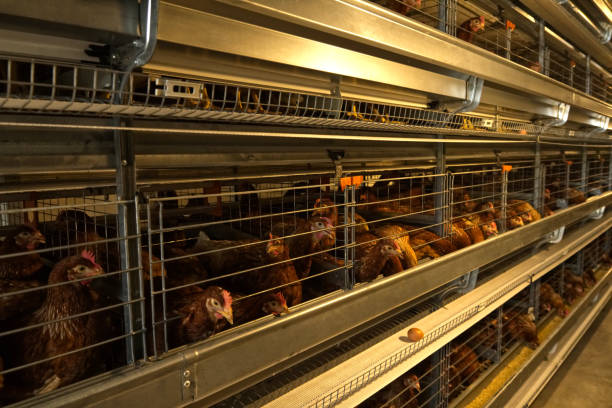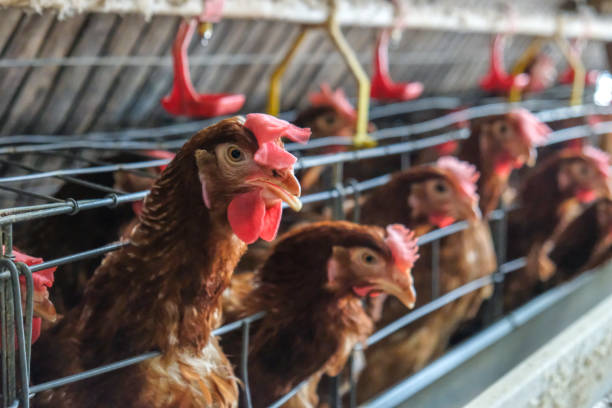How Much Do Battery Cages Really Cost in Nigeria? A 2024 Guide
How Much Do Battery Cages Really Cost in Nigeria? A 2024 Guide
Poultry farming in Nigeria is a booming industry, and if you’re thinking of diving in, understanding the costs involved is crucial. One of the biggest investments you’ll make is in housing your birds, and battery cages are a popular choice for many commercial farmers. But how much do these cages really cost in Nigeria in 2024? Let’s break it down.
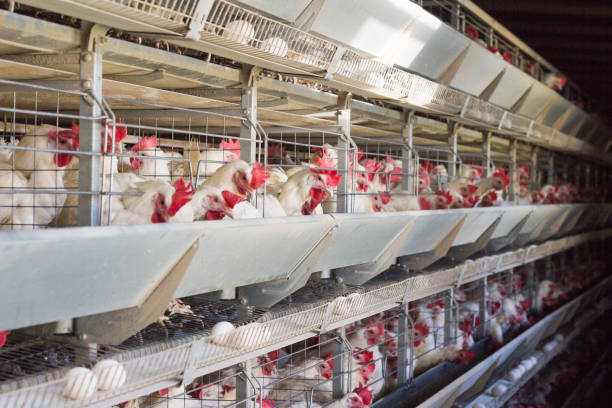
Why Battery Cages? Understanding the Appeal
Before we jump into the nitty-gritty of pricing, let’s quickly touch on why battery cages are so widely used. For many farmers, they offer several advantages:
Space Optimization: Battery cages allow you to house a large number of birds in a smaller area compared to other systems like deep litter. This is especially important if you have limited land.
Improved Hygiene: The design of battery cages often makes it easier to manage manure and keep the birds cleaner, reducing the risk of disease.
Easier Management: Feeding, watering, and egg collection are generally more streamlined in a battery cage system.
Increased Egg Production: Some farmers believe that the controlled environment of battery cages can lead to higher egg production.
However, it’s important to note that battery cages have also faced criticism regarding animal welfare. As consumer awareness grows, some farmers are exploring alternative housing systems that prioritize bird well-being. We’ll discuss this briefly later, but for now, let’s focus on the costs associated with battery cages.
Factors Influencing the Price of Battery Cages in Nigeria
The cost of battery cages in Nigeria isn’t a fixed number. Several factors can influence the price you’ll pay:
Cage Material: The material used to construct the cages is a major price determinant. Galvanized steel is the most common choice, offering good durability and resistance to rust. However, the quality of the galvanization can vary. Thicker galvanization will cost more but will also last longer. Some manufacturers might use cheaper materials, which will reduce the initial cost but could lead to faster deterioration and the need for early replacement.
Cage Capacity & Size: The number of birds that a cage can hold directly impacts the price. Larger cages or those designed for more birds will obviously cost more than smaller ones. The size of the overall system you need (i.e., the number of tiers and sections) will also affect the total investment.
Number of Tiers: Battery cages are typically stacked in tiers (usually 3 or 4 tiers high) to maximize space utilization. More tiers mean more cage material and a higher price. However, consider the ease of access and management as you add more tiers.
Automated Systems: Basic battery cages require manual feeding, watering, and egg collection. However, you can invest in automated systems that handle these tasks. Automation increases the initial cost but can save you time and labor costs in the long run. Automated systems include:
Automatic Feeding Systems: These distribute feed to all cages at pre-set intervals.
Automatic Drinking Systems: Nipple drinkers provide a constant supply of fresh water.
Automatic Egg Collection Systems: Conveyor belts collect eggs and transport them to a central collection point.
Manure Removal Systems: These systems help to remove manure from the cages, improving hygiene and reducing labor.
Manufacturer/Supplier: The price can vary significantly depending on the manufacturer or supplier you choose. Some suppliers import cages, while others manufacture them locally. Locally manufactured cages might be cheaper, but it’s important to assess the quality. Established and reputable suppliers often charge more but offer warranties and after-sales support.
Transportation Costs: Don’t forget to factor in the cost of transporting the cages to your farm. This can be a significant expense, especially if you’re located far from the supplier.
Installation Costs: Some suppliers include installation in the price, while others charge extra. Installation can be complex, so it’s often best to have it done by professionals.
Currency Exchange Rates: If you’re buying imported cages, fluctuations in currency exchange rates can affect the final price, especially with the current volatility of the Naira.
Market Demand: Like any commodity, the price of battery cages can fluctuate based on supply and demand. If there’s a high demand for cages, prices may increase.
Features and Accessories: Additional features and accessories, such as lighting systems, ventilation fans, and temperature control devices, can add to the overall cost.
Estimating the Cost: Price Ranges for 2024
Given the factors above, it’s difficult to give an exact price for battery cages. However, here’s a general idea of what you can expect to pay in Nigeria in 2024:
Manual Battery Cages (per tier, holding approximately 96-128 birds): NGN 250,000 – NGN 450,000. This is a very general estimate, and the actual price will depend on the material quality and supplier. This type of cage often requires a more hands-on approach to poultry management.
Semi-Automated Battery Cages (per tier, holding approximately 96-128 birds): NGN 500,000 – NGN 800,000. These cages typically include automatic drinking systems and may have semi-automatic feeding systems.
Fully Automated Battery Cages (per tier, holding approximately 96-128 birds): NGN 850,000 – NGN 1,500,000 or more. These cages have fully automated feeding, drinking, egg collection, and manure removal systems.
Important Considerations Before You Buy
Bird Capacity: Carefully calculate the number of birds you plan to house and choose cages that are appropriately sized. Overcrowding can lead to stress and disease. Remember to plan for future expansion as well.
Cage Dimensions: Consider the dimensions of the cages and ensure they fit comfortably within your poultry house. Leave enough space for walkways and access for maintenance.
Ventilation: Proper ventilation is crucial for the health of your birds. Ensure that your poultry house has adequate ventilation to prevent the build-up of ammonia and other harmful gases. Consider adding fans or other ventilation equipment if necessary.
Durability: Invest in cages that are made from durable materials and are built to last. Consider visiting farms that have been using cages from different suppliers for several years to see how they have held up.
Ease of Cleaning: Choose cages that are easy to clean and disinfect. This will help to prevent the spread of disease.
Supplier Reputation: Research the reputation of the supplier before you make a purchase. Read reviews and talk to other farmers who have used their products. Look for suppliers who offer warranties and after-sales support.
Animal Welfare: While battery cages are still widely used, be mindful of animal welfare concerns. Ensure that the cages provide adequate space for the birds to move around and exhibit natural behaviors. Consider alternatives like enriched cages or aviary systems, which offer improved welfare standards.
Beyond the Initial Cost: Calculating Long-Term Expenses
The initial cost of battery cages is just one part of the equation. You also need to consider the long-term expenses associated with using them:
Maintenance: Battery cages require regular maintenance to keep them in good working order. This includes cleaning, repairing damaged parts, and replacing worn-out components.
Electricity: If you’re using automated systems, you’ll need to factor in the cost of electricity to power them.
Labor: Even with automated systems, you’ll still need labor to manage the birds, collect eggs, and maintain the equipment.
Depreciation: Battery cages will eventually depreciate and need to be replaced. Factor this into your long-term financial planning.
Alternatives to Battery Cages
As mentioned earlier, there’s growing interest in alternative housing systems that prioritize animal welfare. Here are a few options:
Enriched Cages: These are similar to battery cages but offer more space and include features like perches, scratching areas, and dust baths to allow birds to exhibit more natural behaviors.
Aviary Systems: Aviary systems allow birds to move freely within a large indoor space. They typically include multiple tiers and allow birds to perch, fly, and interact socially.
Free-Range Systems: In free-range systems, birds have access to both indoor and outdoor areas. They can roam freely, forage for food, and engage in natural behaviors.
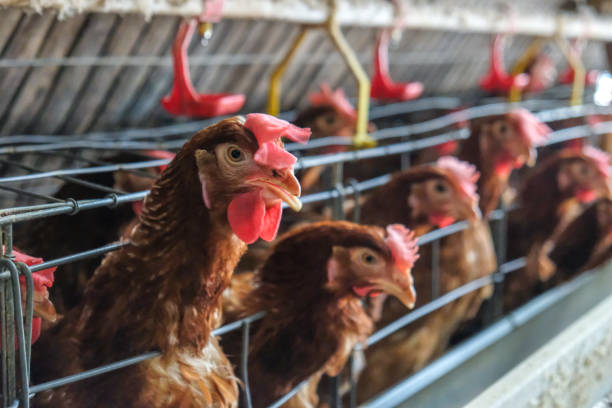
While these alternative systems often have higher initial costs, they can potentially lead to better egg quality, improved bird health, and a higher market price for your eggs due to increased consumer demand for ethically produced products.
Where to Buy Battery Cages in Nigeria
You can find battery cages from various suppliers across Nigeria. Some popular options include:
Local Manufacturers: Search online directories and agricultural trade shows for local manufacturers in your area.
Importers: Many companies import battery cages from China and other countries. You can find them through online marketplaces like Alibaba or directly from their websites.
Agricultural Equipment Suppliers: Many agricultural equipment suppliers carry a range of poultry equipment, including battery cages.
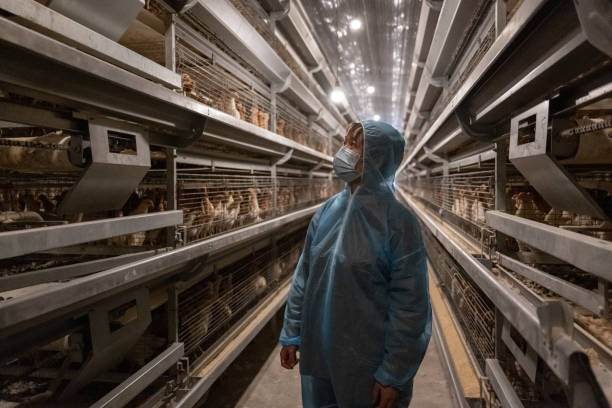
Tips for Negotiating Prices
Get Multiple Quotes: Don’t settle for the first price you get. Obtain quotes from multiple suppliers to compare prices and negotiate the best deal.
Negotiate Bulk Discounts: If you’re buying a large quantity of cages, you may be able to negotiate a bulk discount.
Ask About Payment Plans: Some suppliers may offer payment plans or financing options.
Consider Used Equipment: If you’re on a tight budget, consider buying used battery cages. Just make sure they’re in good condition.
Final Thoughts
Investing in battery cages is a significant decision for any poultry farmer in Nigeria. By understanding the factors that influence the price, considering the long-term costs, and exploring alternative housing systems, you can make an informed decision that aligns with your budget and your values. Always prioritize the health and well-being of your birds, as this will ultimately contribute to the success of your poultry business. Remember to thoroughly research suppliers, compare prices, and negotiate the best possible deal. Good luck with your poultry farming venture! Don’t be afraid to ask questions and seek advice from experienced farmers in your area. They can provide valuable insights and help you avoid costly mistakes.



